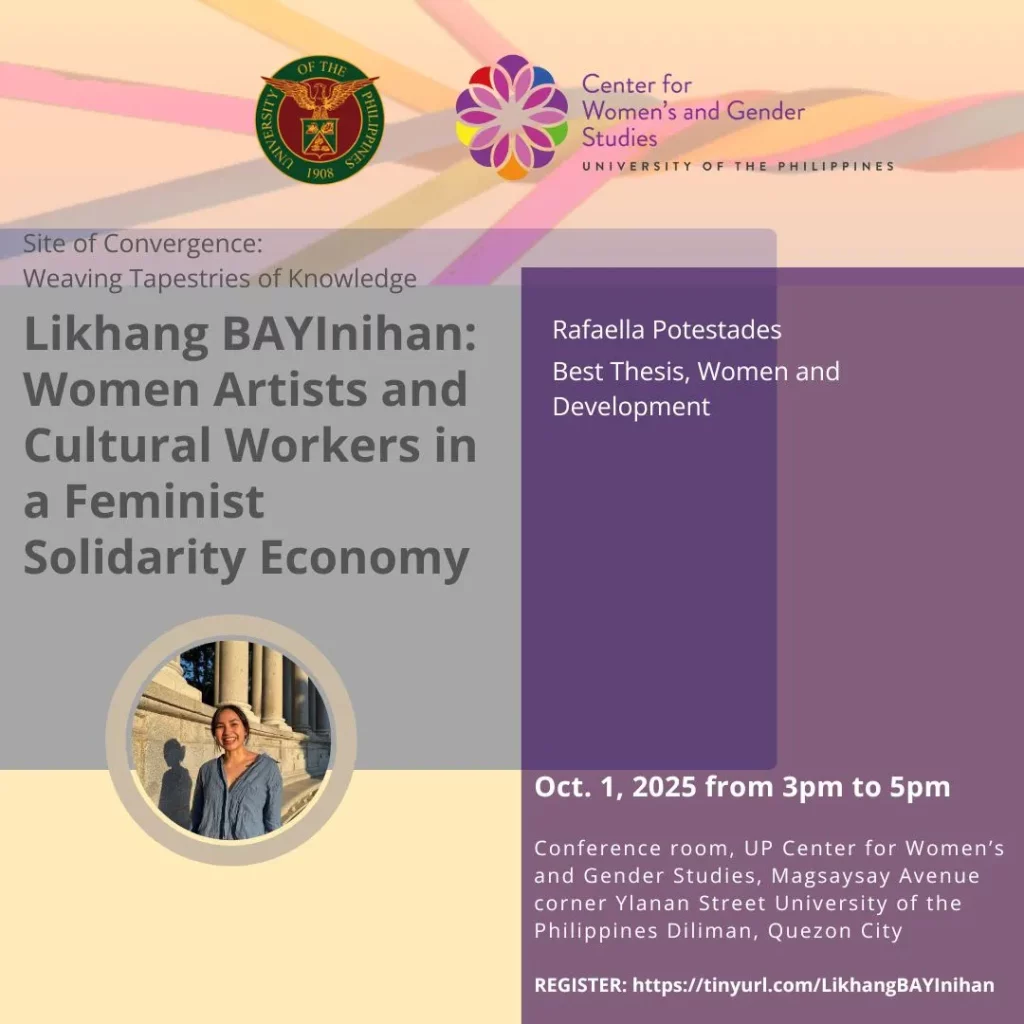Likhang BAYInihan: Women Artists and Cultural Workers in a Feminist Solidarity Economy

The University of the Philippines Center for Women’s and Gender Studies (UPCWGS) invites everyone to Likhang BAYInihan: Women Artists and Cultural Workers in a Feminist Solidarity Economy on 1 October 2025 (Wednesday), 3:00-5:00 PM at the UPCWGS Conference Room. This event is the 13th session of the “Site of Convergence: Weaving Tapestries of Knowledge” lecture series.
Register here.
For this event, Rafaella Potestades will present her thesis, Likhang BAYInihan: Situating Filipino Women Artists and Cultural Workers’ Livelihood Practices and Resistance Within a Feminist Social Solidarity Economy Framework, which was submitted in fulfillment of her Master of Arts in Women and Development at UP Diliman. It also received the program’s Best Thesis Award.
Potestades is currently the co-executive director for programs of BAYI, Inc. and the former national co-convener of the Philippine Anti-Discrimination Alliance of Youth Leaders (PANTAY). She completed her master’s degree in 2025. She is currently part of various gender-transformative programs focused on women political participation, sexual and reproductive health and rights, and climate justice
Her research examines the social positionality of Filipino women artists, artisans, and cultural workers across household, community, market, and state institutions. Through feminist epistemology and case studies of three women-led creative organizations, it highlights their lived experiences, artistic contributions, and collective practices. Drawing on Naila Kabeer’s social relations approach and Nathalie Africa-Verceles’s feminist social solidarity economy (FSSE), the study explores how institutional forces shape their economic vulnerability and creative identities within a neoliberal creative economy. The FSSE lens is further applied to assess the solidarity-based practices these organizations employ to challenge the commodification of creative labor, particularly the devaluation of art and culture, overrepresentation in informal work, and the instability typical of gig economies.
